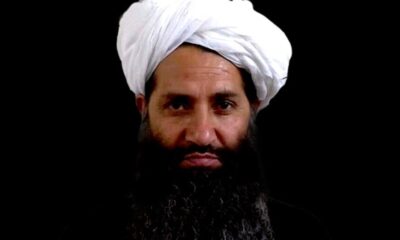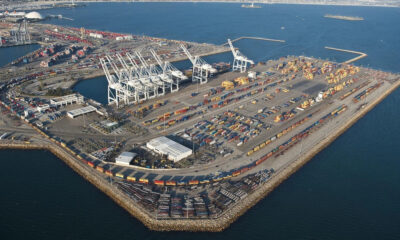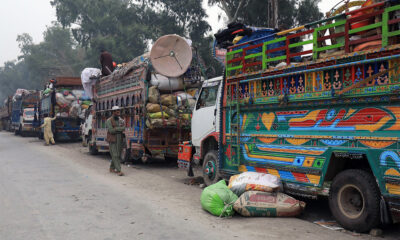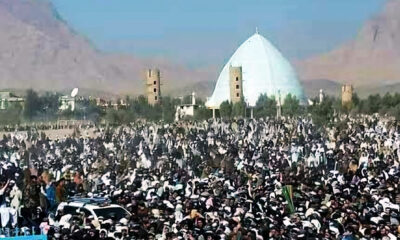Latest News
ARA signs accord with Iranian counterpart to operate Khaf-Herat railway line
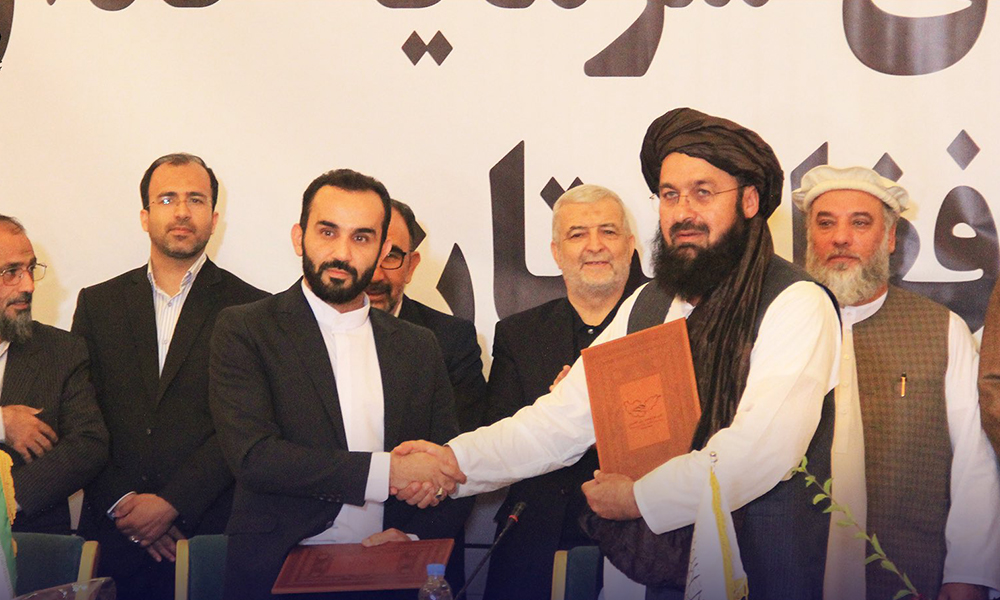
The Afghanistan Railway Authority (ARA) said this week on X that it has signed an agreement with the Iranian Railway Consortium to operate the Khaf-Herat railway line.
According to ARA, Iran will send 100,000 tons of goods via this railway line in the first year of operation. From then on, the volume will increase by 100,000 tons per year.
Bakhtur Rahman Sharaft, the head of the railway authority, said that the construction of the first phase of the 4th section of Khaf-Herat Railway Project will start next week, ARA reported.
Also, with the signing of this contract, transfer of goods will continue normally through Khaf-Herat, while work is done on the 4th section. This line is connected to Turkey and European countries through Iran and the Iranian railway network.
Earlier this year, the first trial run of cargo from Iran to Afghanistan via the Khaf-Herat railway was completed.
This shipment included 17 wagons that transferred 655 tons of railway equipment for the further construction of the rail line.
The Khaf-Herat railway is 225 kilometers long, with 140 km of the railway track traversing Afghanistan and the remaining 85 km running through Iran. The construction of the Khaf-Herat railway line, which links Khaf in eastern Iran with Herat in western Afghanistan, started in 2007. The project has a reported value of $75 million and is being funded by Iran.
Nooruddin Azizi, Minister of Commerce and Industry, says that currently the amount of trade between Kabul and Tehran totals $2 billion per year but they want this trade to grow to $10 billion dollars per year.
A number of members of a visiting Iranian delegation also say that considering the opportunity that has arisen, Afghanistan and Iran should make the most of it for the expansion of trade relations.
Amir Khan Muttaqi, Acting Minister of Foreign Affairs, also met with the Iranian delegation.
In this meeting, the two sides emphasized the need for more cooperation between the two countries as neighbors.
Muttaqi said that drug production in Afghanistan has been eradicated and the conditions for commercial and economic cooperation are more favorable than before.
Latest News
Islamic Emirate faces a wave of negative propaganda: Supreme leader
In his speech, Akhundzada emphasized on avoiding division and disunity, stating that the survival of the system lies in unity and solidarity.
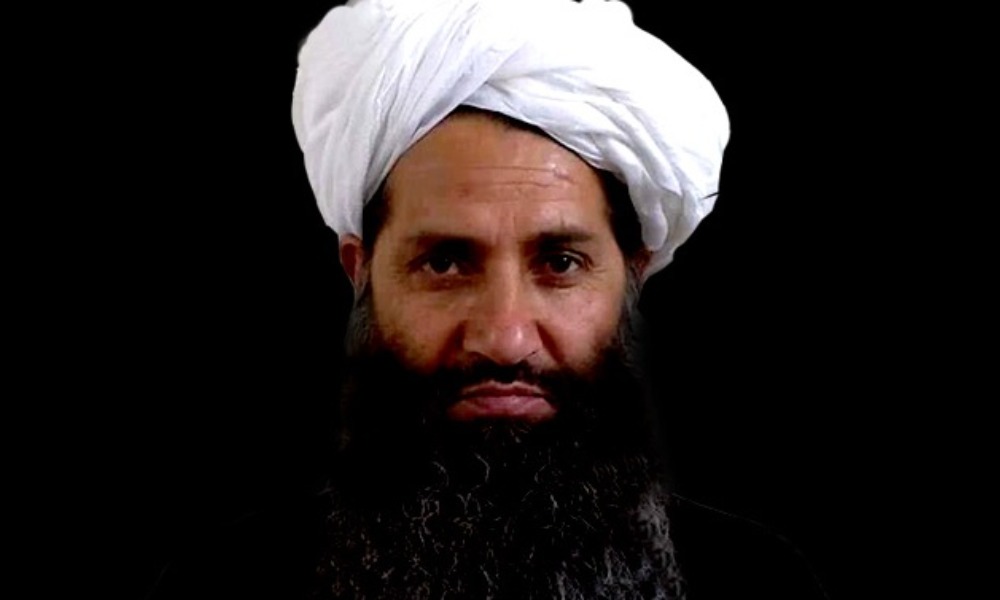
Mawlawi Hibatullah Akhundzada, supreme leader of the Islamic Emirate of Afghanistan (IEA), led Eid-ul-Fitr prayer in Kandahar province on Sunday, attended by thousands of people.
In his speech, Akhundzada emphasized on avoiding division and disunity, stating that the survival of the system lies in unity and solidarity.
He added that the Islamic Emirate is facing a wave of negative propaganda, and its enemies are using these tactics to incite war and conflict in the country once again.
He warned that division would lead to the failure of Muslims and the collapse of systems.
The leader of the Islamic Emirate further mentioned that they sacrificed their lives for 20 years to achieve victory in jihad, and protecting this system requires even more sacrifices.
He called on the people, the forces of the Islamic Emirate, and officials to obey the leadership’s orders, emphasizing that the absence of leadership in the past led to civil wars, which must not be repeated.
Latest News
Pakistan finalizes plans to detain and deport Afghans as deadline nears
Pakistan has granted Afghan migrants, both undocumented and those holding ACC cards, a deadline of March 31 to voluntarily leave the country.
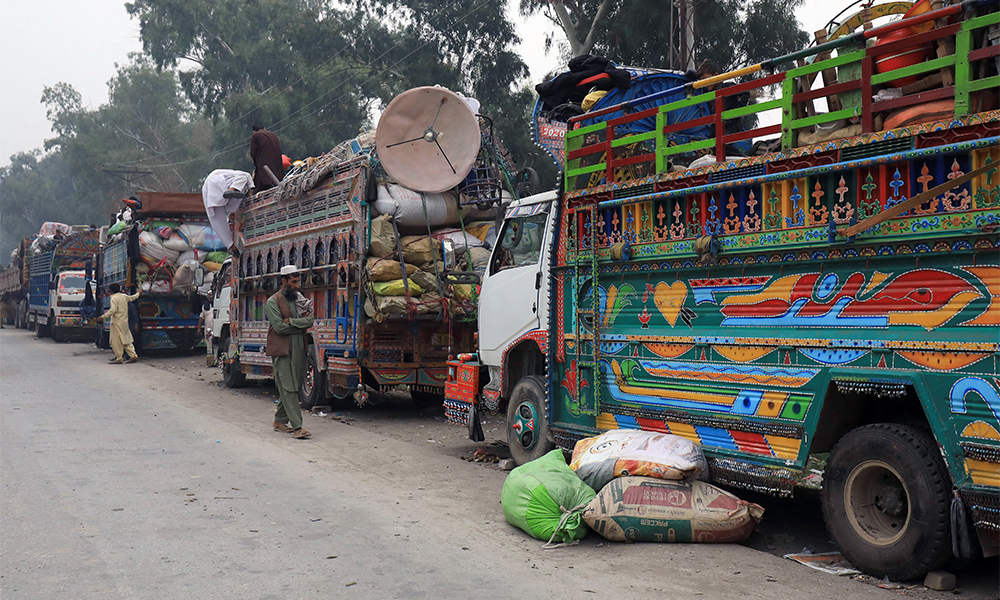
Officials in Pakistan have completed arrangements to detain and expel Afghan citizens following the March 31 deadline for their voluntary return to Afghanistan. This move is part of the country’s plan to address the growing concerns regarding the status of Afghan migrants in Pakistan.
A high-level meeting on Friday, chaired by Interior Minister Mohsin Naqvi, reviewed the measures to repatriate Afghan Citizen Card (ACC) holders. This meeting focused on ensuring the effective execution of the government’s deadline and the logistics surrounding the return process.
Despite requests from the Afghan government and human rights organizations, Pakistani authorities have firmly rejected extending the deadline for the return of ACC holders. The Pakistani government had initially set the deadline for the end of March, and the expulsion process will move forward as planned.
Mohsin Naqvi also revealed that Talal Chaudhry, the State Minister for Interior, would travel to the provinces to assess and address any challenges and potential issues in the process of Afghan migrants’ return.
Meanwhile, Pakistani security forces have detained at least 932 Afghan migrants in Rawalpindi, as the deadline for the expulsion of Afghan migrants with ACC cards approaches.
Human rights organizations have strongly condemned Pakistan’s recent decision to expel Afghan refugees, labeling it a violation of international law and a potential humanitarian crisis. They argue that many of these refugees, including human rights defenders, political activists, and victims of gender-based violence, fled Afghanistan to escape persecution and are now at risk of facing harm if deported.
The Human Rights Commission of Pakistan (HRCP) has expressed deep concern over the government’s ultimatum for undocumented immigrants to leave by March 31, warning that this could lead to a humanitarian disaster. They highlight that such forced repatriation violates international customary law and could adversely affect vulnerable groups, including women, children, the elderly, and individuals with disabilities.
Amnesty International has called on Pakistan to halt the detentions, deportations, and harassment of Afghan refugees, emphasizing that these actions violate the principle of non-refoulement, which prohibits returning individuals to places where they face risks of persecution. They stress that deporting Afghan refugees, especially women and girls, could deny them access to safety, education, and livelihoods.
Pakistan has granted Afghan migrants, both undocumented and those holding ACC cards, a deadline of March 31 to voluntarily leave the country.
However, Pakistani officials confirmed that Afghan migrants holding “PoR” cards are not at risk of being expelled until June 30.
Meanwhile, the International Organization for Migration (IOM) reported a sharp decline in Afghan returns and deportations during the first half of March. Between March 1 and 15, returns dropped by 67 per cent, while deportations fell by 50 per cent compared to the previous reporting period (February 16-28).
Latest News
Eid prayer led by IEA leader in Kandahar: Mujahid
Abdul Salam Hanafi, the Deputy Prime Minister for Administrative Affairs, called on opposition groups to return to Afghanistan and participate in the country’s reconstruction.
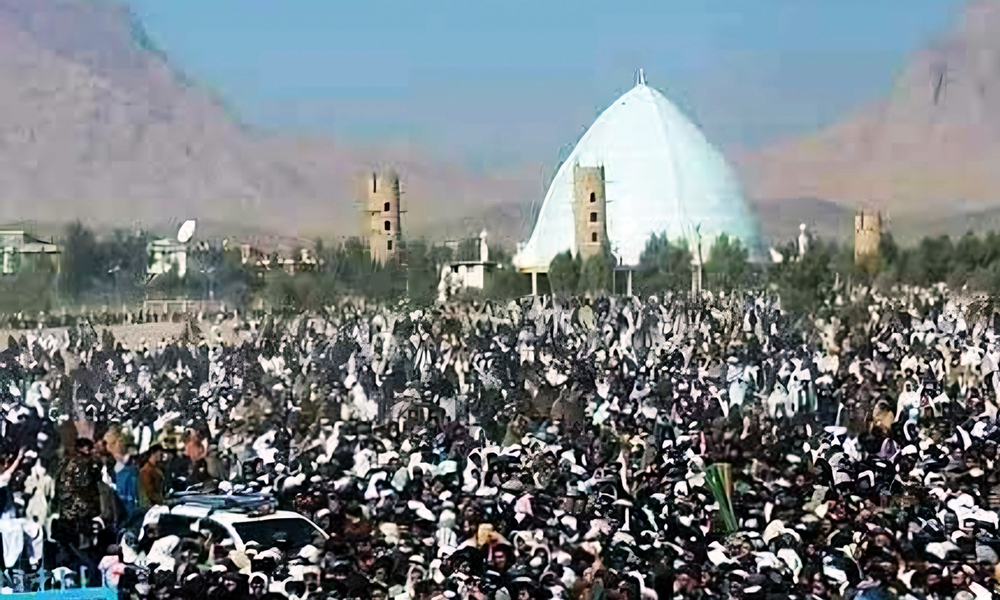
Zabihullah Mujahid, the spokesperson for the Islamic Emirate, announced on Sunday that the Eid al-Fitr prayer was held at the Eidgah Mosque in Kandahar, where Hibatullah Akhundzada, the Supreme Leader of the IEA, led the prayers.
Thousands of people attended the event, marking a significant religious occasion.
Other IEA senior officials gathered for the Eid prayer at the ARG (Presidential Palace) in Kabul.
Mullah Abdul Ghani Baradar, the Deputy Prime Minister for Economic Affairs, took the opportunity to address the public, stating that the Islamic Emirate is ready to engage with the world based on mutual respect. He also emphasized the importance of unity and solidarity among the Afghan people.
Baradar stressed that rebuilding the country requires internal unity and that no foreign entity can achieve this task for Afghanistan. On security, he highlighted the achievements of the past three years, asserting that under their administration, Afghanistan has become fully secure.
He reaffirmed that the IEA is committed to fostering international relations through an “economy-driven policy.”
Abdul Salam Hanafi, the Deputy Prime Minister for Administrative Affairs, called on opposition groups to return to Afghanistan and participate in the country’s reconstruction.
Hanafi reiterated the IEA’s desire for economy-driven relations with all regional and global powers based on mutual respect.
Mohammad Yousuf Wafa, the Governor of Balkh, also affirmed that the current system will not be undermined. He stated, “This system was established through great sacrifices, and it is our collective duty to defend it.”
The Eid prayers and the speeches of the IEA leadership underscored a message of unity, security, and a desire for positive international engagement.
-

 World5 days ago
World5 days agoSecretive Chinese network tries to lure fired US federal workers, research shows
-

 Latest News4 days ago
Latest News4 days agoAfghanistan has the right to access Amu River’s water: Uzbek minister
-

 Climate Change5 days ago
Climate Change5 days agoUN and ICRC warn of serious water shortage in Afghanistan
-

 Latest News4 days ago
Latest News4 days agoAmnesty international urges Pakistan to halt Afghan deportations
-

 International Sports5 days ago
International Sports5 days agoIPL 2025: Punjab Kings secure thrilling 11-run win over Gujurat Titans
-
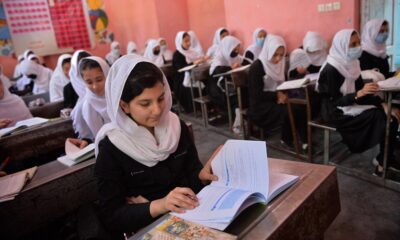
 Latest News4 days ago
Latest News4 days agoUN ‘deeply disappointed’ over ongoing ban on girls’ secondary education
-

 Latest News4 days ago
Latest News4 days agoAfghanistan-Iran-Europe railway corridor activated
-

 Business3 days ago
Business3 days agoAfghanistan ships first consignment to Europe via Khaf-Herat railway


